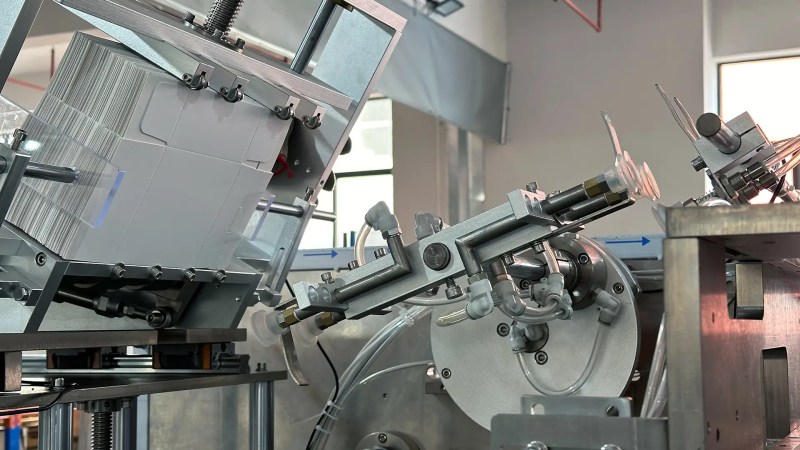Cartoning machines are an essential part of modern packaging lines. They help manufacturers improve efficiency, reduce labor costs, and maintain consistency. But without the right carton loading method, even the best cartoning machine can’t reach its full potential.
The three main types of carton loading methods are manual, semi-automatic, and fully automatic. Each has different speed, efficiency, and labor requirements. Choosing the right one depends on your production needs and budget.
Making the wrong choice can lead to inefficiencies, wasted resources, or even damaged products. Let’s dive into each method to understand which is best for different applications.
What Is Manual Carton Loading?
Sometimes, full automation isn’t practical. Small businesses, short production runs, or delicate products often require human handling.
Manual carton loading involves workers physically placing products into cartons. It is the slowest method, but it offers flexibility for irregularly shaped products and low-volume packaging.
When Should You Use Manual Carton Loading?
Manual loading is ideal for:
- Small-scale operations – If you have limited production, automation might be too costly.
- Irregular product shapes – Some products don’t fit well into standard loading mechanisms.
- Frequent packaging changes – If you regularly change carton sizes or packaging formats, manual loading allows easy adjustments.
- Limited budget – Avoiding automation reduces initial investment.
Advantages and Disadvantages of Manual Loading
| Pros | Cons |
|---|---|
| No expensive equipment required | Slowest loading speed |
| Works with any product type | Higher labor costs |
| Easy to change packaging formats | Inconsistent accuracy |
| Suitable for small businesses | Not scalable for large production |
Many startups and specialty product manufacturers choose manual loading when launching new product lines. At Hannpro, we often see customers begin with manual loading and later transition to semi-automatic or fully automatic solutions as demand grows.
What Is Semi-Automatic Carton Loading?
Manual loading works for small businesses, but what if your production volume increases? Fully automatic machines can be expensive, which is where semi-automatic loading becomes useful.
Semi-automatic carton loading uses both human labor and machine assistance. Operators place products into a designated position, and the machine pushes them into the carton.
How Does Semi-Automatic Carton Loading Work?
- Operator places products – The worker arranges products on a conveyor or loading platform.
- Machine assists with positioning – The machine aligns the products to ensure they fit properly.
- Products are pushed into cartons – A mechanical arm or pusher loads the items into the carton.
- Carton is sealed – Sealing can be done manually or with an automatic system.
Why Choose Semi-Automatic Carton Loading?
| Recurso | Beneficiar |
|---|---|
| Faster than manual loading | Increases production output |
| Less human error | Ensures more consistent packaging |
| Lower labor costs | Reduces reliance on manual work |
| More flexible than full automation | Can adapt to different products |
No Hannpro, we frequently recommend semi-automatic loading to businesses that are scaling up. It helps companies boost productivity without requiring a massive investment in full automation.
What Is Fully Automatic Carton Loading?
When production volume is too high for manual or semi-automatic loading, full automation is the answer.
Fully automatic carton loading machines handle every step of the process, from product infeed to final sealing, without human intervention.
Key Features of Fully Automatic Loading
- Continuous high-speed operation – Processes hundreds or thousands of cartons per hour.
- Precision and consistency – Ensures every product is placed exactly the same way.
- Lower labor costs – Reduces human intervention, minimizing payroll expenses.
- Seamless integration – Works with conveyors, labelers, and other packaging systems.
Industries That Benefit from Fully Automatic Carton Loading
| Indústria | Why It’s Useful |
|---|---|
| Comida & Bebida | Ensures hygiene and efficiency |
| Produtos farmacêuticos | Guarantees precise dosing |
| Electronics | Protects fragile components |
| Cosméticos | Increases production output |
Many large-scale manufacturers rely on Hannpro’s automatic cartoning machines to ensure fast, accurate, and cost-effective packaging.
Comparing the Three Carton Loading Methods

Choosing the right method depends on your budget, production volume, and product type.
| Fator | Manual Loading | Semi-Automatic Loading | Fully Automatic Loading |
|---|---|---|---|
| Initial Investment | Baixo | Medium | Alto |
| Production Speed | Slow | Medium | Fast |
| Labor Costs | Alto | Medium | Baixo |
| Product Consistency | Baixo | Medium | Alto |
| Best for | Small batches, unique products | Growing businesses | High-volume production |
How to Transition from Manual to Automatic Carton Loading
Many businesses start with manual loading and gradually move toward automation. Here’s how to make a smooth transition:
- Assess your production needs – Track your output and identify bottlenecks.
- Upgrade to semi-automatic – Invest in a machine that assists workers while maintaining flexibility.
- Plan for full automation – Once your volume is high enough, calculate the ROI of a fully automatic system.
- Choose the right partner – Work with experienced manufacturers like Hannpro to ensure a smooth transition.
No Hannpro, we help businesses of all sizes implement the right cartoning solutions. Whether you need a manual system to start or a fully automatic system to scale up, we provide tailored solutions for every stage of your growth.
Conclusão
Carton loading plays a crucial role in packaging efficiency. Manual, semi-automatic, and fully automatic methods each have their pros and cons. The right choice depends on your production scale, budget, and product type. Investing in the right loading method ensures smooth operations and long-term cost savings.
If you’re unsure which solution is best for your business, Hannpro is here to help. With years of experience in the cartoning industry, we provide expert guidance and high-quality equipment to meet your needs.
